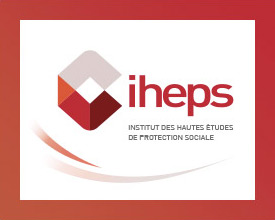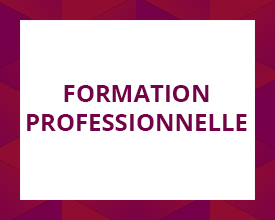20 March 2020
Opening Of The Selection To The CapDirigeants Cycle: Interview With Jean-Louis Rey, President Of The Entry Jury
The “CapDirigeants” training, created in line with the reform of the aptitude lists, has opened up another avenue for access to management positions since 2014. This training cycle, replacing the old specialised courses, is characterised by openness. Accessible to all the institution’s networks, to all its professions, to profiles marked by committed professional careers, the CapDIR thus represents a unified path for internal promotion to managerial positions. On the occasion of the opening of the entries on the L3 aptitude list, meeting with Jean-Louis Rey, president of the jury for entry to the cycle.
Jean-Louis Rey, in your capacity as Chairman of the entry jury for the CapDirigeants cycle, can you review the profiles of the candidates from the last selection? What trends can you identify?
The jury had the satisfaction of having selected 24 good candidates for this 5th session with a sufficient diversity of profiles and origins. Given the potential of the 176,000 employees of the Social Security system, this figure may seem low, hence a call for the management of the organizations to be proactive in identifying and orienting good potentials. This selection was also a source of satisfaction in terms of perseverance. The encouraging successes of candidates in the second or third attempt are evidence of the candidates’ ability to progress and refine their preparation to reveal their true potential. Indeed, this is the case of 4 admitted, 3 of whom were admitted for which it was the third attempt. The last satisfaction was the possibility of finally being able to retain candidates who started their careers in the Institution “at the beginning”, including 3 admitted who started as technicians.
Two levers are inseparable in the registration of candidates: the appetite of the person concerned for management, and the detection of potential by his hierarchy, the organization’s management. In order to enlighten potential candidates, what are the qualities and skills sought for the CapDIR cycle?
More than just appetite for management, we are looking for candidates with the ability to demonstrate this managerial ability in current or past positions. Being selected will mean that the jury has considered that the candidate has already acquired sufficient elements of the management agent’s posture.
As mentioned above, the detection of potential by the director or management of the organization is very important. This means, in particular, that the written opinion of the Director must not be limited to a short approval but must be based on the merits of the application.
The jury also expects appetence for the strategic dimension of an organization’s life, this ability to extract itself from the operational to take on the multiple tasks that constitute its daily life. He must constantly know how to place his action in the context of the life and roadmap of his organization
More generally, the candidate must demonstrate his or her interest and knowledge of the strategy of his or her branch and scheme, as well as of the national social security policy pursued. He must invest the news of his branch and of Social Security as a whole.
The candidate is expected to demonstrate and maintain the necessary intellectual curiosity that should animate the senior manager. For those already in management positions, they must consider their motivations for professional mobility and the transferability of the skills acquired in their position.
A l’occasion de l’ouverture des inscriptions sur la liste d’aptitude L3 (et donc au cycle), quels conseils pourriez-vous donner aux futurs candidats ?
- Gain height and have an analytical and critical look at your professional background and current work.
- Make the operational and strategic part of your current activity;
- Position your activity within the framework of your organization, and that of your Social Security branch or regime;
- Measure the difference between the current functions and those of a management agent;
- And on this basis, assess the remaining work to be done and its possible degree of achievement and the time required to achieve it. It is essential in this process to be helped by the eyes of trustworthy people who know how to say things clearly.
If this examination/assessment of his situation and potential is conclusive, I invite the person to submit his application and prepare him seriously by:
- Paying all the necessary attention to the development of the core of the application file, the cover letter and the curriculum vitae;
- Working on oral expression, the introductory intervention which must be equally convincing and spontaneous;
- Refining its arguments on its managerial capacities and on what should be highlighted in terms of selection, motivation and professional project, without unnecessary repetition in relation to the application file;
- Finally, to invest the news of its branch and/or its regime and in that of Social Security as a whole.
How could you summarize the objectives of the training?
The training aims to help the candidate to complete the acquisition or consolidation of a management agent position for which it is recognised from his selection that he has already acquired sufficient elements of this position. First of all, the objective is to work on team management, know-how and just as much on interpersonal skills. The cycle must help the person concerned to position himself concretely as an actor in the strategy of an organisation (how to be part of the design of this strategy and its development, how to ensure its implementation and participate in it…).
CapDIR highlights the great diversity and interest of the professions that make up the richness of the life of an organization, a branch or a social security system. The training must convince the trainee that, once the training is completed, he/she must integrate new functions, in a new field, in another branch or regime, or even in another region: the CapDIR makes it possible to acquire a culture of mobility and to be a direct vehicle for it. Mobility, which in all its components, is still too low in the world of social security.
Ultimately, the objective of the cycle is to put the candidate in a position to convince the directors of organizations to come and work in their teams, at their side.
For more information on the cycle and selection: click here (in french)





